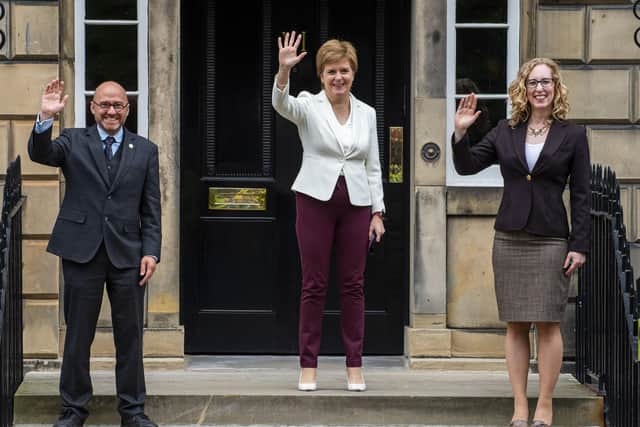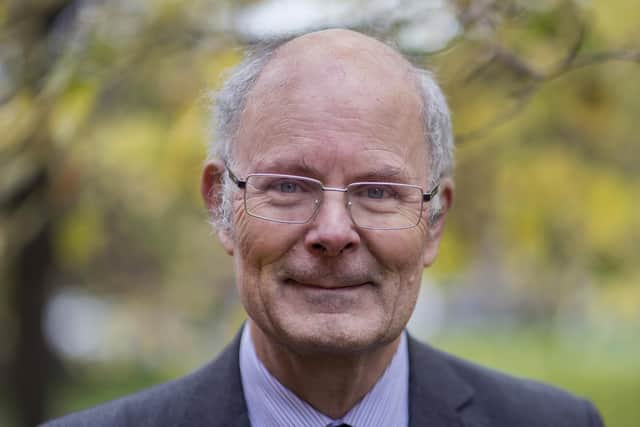Scottish Greens: Bute House Agreement is not source of the SNP's difficulties, says Professor Sir John Curtice
Polling expert Professor Sir John Curtice says the Bute House Agreement is not the source of the SNP’s dwindling popularity.
A number of SNP figures, including rebel backbencher Fergus Ewing, first minister hopeful Kate Forbes, and MP Joanna Cherry, have called for the party to re-ballot its members on whether to continue with this agreement.
Advertisement
Hide AdAdvertisement
Hide AdThe agreement, which was signed back in August 2021, officially brought the Scottish Greens into government and gave the party's two co-leaders, Patrick Harvie and Lorna Slater, ministerial positions.


However, the SNP has been divided on a number of key policies brought forward on the back of this deal, including gender reform, the deposit return scheme, and highly-protected marine areas.
This has led to some within the party calling for the deal to be renegotiated or for a vote to be held on the future of the Bute House Agreement.
This also comes after the Greens’ first parliamentarian, Robin Harper, left the party saying they had “lost the plot” and become “careless and cocky” in government.
Mr Harper, who was an MSP for the Lothians region from 1999 until 2011, also branded Mr Harvie and Ms Slater’s leadership “arrogant and abrasive”.


However, Prof Curtice said the split in the party over this agreement was not the source of the SNP’s plummeting popularity in the polls, and has not harmed the Greens’ election chances at all.
Speaking on BBC’s Good Morning Scotland, he said: “We have had three opinion polls, which have asked people whether or not they think the arrangement is good for Scotland.
“It won’t surprise you to hear given we are talking about the two parties that in May 2021 got half of the vote between them in the Holyrood election, that the opinion polls are also divided.
Advertisement
Hide AdAdvertisement
Hide Ad“Two polls had more people thinking it was bad, and one had it the other way around. The truth is a lot of the people who say it is bad are the people who didn’t vote for the SNP or the Greens back in the Scottish Parliament election.”
Prof Curtice said if people looked specifically at those who did vote SNP, between half and two thirds were in favour of the Bute House Agreement – but there was a “not inconsiderable minority” who think it is a bad idea.
He said the agreement had not damaged the election chances of the Greens, as their polling had been consistent ever since the deal was signed.
Prof Curtice added: “The SNP will be asking themselves ‘have we let the Greens into government and they are getting the better deal electorally?’ We can’t assume this arrangement is the reason the SNP is slipping.
“A lot of other things have been going on, like the change in the SNP leader and the leadership election, which doesn’t seem to have done the SNP any good.
“If we look at the timeline of when SNP support went down, it was slipping a bit before Nicola Sturgeon resigned and it has slipped a bit since, but primarily it was during the leadership contest and the election of Humza Yousaf.
“It is up to them to look at their partners in government, and the SNP is not looking at the principle source of their political difficulties.”
Comments
Want to join the conversation? Please or to comment on this article.